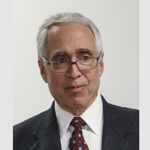Leading by Example
Unfortunately, the orientation program never was launched. Riding high in the polls and well on his way to a big win on taxes, the President and his staff apparently concluded that orientation programs are for sissies.
The past few months have shown just how wrong the administration has been. No one should be more emphatic about the need for orientation than Karl Rove, the President's campaign manager and chief White House strategist. Rove had just about every ethics accident in the book during his first six months in office, and has taken a beating in the press and on Capitol Hill.
Although he took a brief ethics training program last February, Rove's recent actions suggest that he still doesn't understand that appearances are important. Consider Rove's holdings in Intel Corp., which he valued at more than $100,000 in his government disclosure statement last spring. Despite undeniable financial interests in the company's success, he still met privately with Intel executives at the White House to discuss a host of yet to be revealed concerns, which may well have included Intel's request for federal approval of a proposed merger involving a key supplier.
Also consider Rove's holdings in the Boeing, General Electric, Pfizer and Enron corporations, each of which he valued at more than $50,000, and all of which were affected by rising energy prices. Again, despite undeniable financial interests in each company, Rove nonetheless held the stocks throughout the winter and spring when he participated in what the White House later called "meetings at which the contours of the administration's energy policy were discussed." He also met on June 5 with pharmaceutical lobbyists about Medicare reform and prescription drug coverage even though he held more than $250,000 in drug stocks. He finally sold the stocks later in June, blaming the White House counsel's office for the delay. It is an excuse that stands in sharp contrast to his reputation as the administration's most demanding traffic cop.
Next consider Rove's endorsement of a Republican fund-raising event at the vice president's mansion in June. Despite the President's campaign promise to "restore honor and dignity to the White House" in the wake of the Clinton fund-raising scandals, Rove approved the event as a "thank you" for donors who had given the Republican National Committee $100,000 or more. "It's the same thing that was wrong with the [Democratic Party] coffees in the White House-the appearance," says Sen. John McCain, R-Ariz. "It used to be $50,000 for the coffee. Now I understand it's $100,000 for the vice president's house. It's probably better food."
Finally, consider Rove's meeting with Salvation Army officials in July to discuss the administration's embattled faith-based initiative, which was designed to give religious charities the chance to compete for billions in federal grants. Although the White House later denied the quid pro quo, Rove and the Salvation Army appeared to agree that the administration would support a federal regulation allowing religious charities to discriminate against gays in return for a $1 million Salvation Army lobbying campaign on behalf of the President's proposal.
Technically, there was nothing wrong with any of these decisions. Rove's stock holdings were dutifully declared and finally sold, the fund-raiser faded from memory, and the federal regulation was abandoned. But each decision tainted the Bush administration, undermining the President's credibility as the nation's chief ethics officer and adding to public cynicism about government. And Rove's delay in selling his stocks may yet lead to a Justice Department investigation.
Rove will not be the last Bush appointee to learn the importance of appearance. Bush will inevitably appoint people who will be embarrassed, investigated, or even indicted because they don't understand the ethics rules. No matter how much a President promises to have the most ethical administration in history, Presidents and their appointees are only human.
There may be no way to prevent such wrongdoing, but there is a way to reduce the risk: Design and launch the long overdue orientation program. Doing so can't be anything but good for restoring a measure of honor to the tarnished institution of the presidency. It also will put the administration on notice that the President means business when he talks about personal responsibility, whether for ordinary Americans or senior officials. If the President really wants to make the point, he should ask Karl Rove to give the first talk on ethics.
Paul C. Light is vice president and director of governmental studies at the Brookings Institution and senior adviser to the Presidential Appointee Initiative.
NEXT STORY: 100 Days in the Shadows







